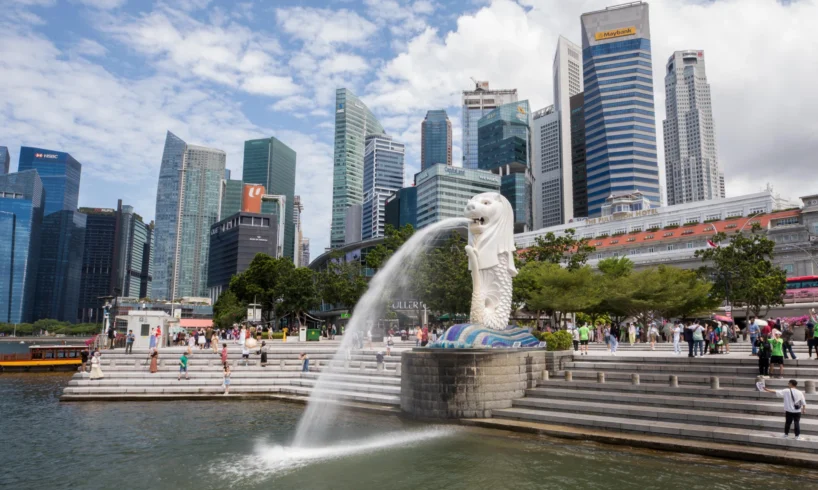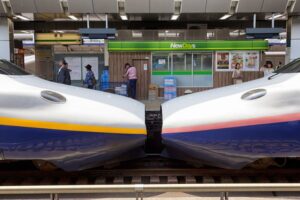
ON JUL 7, 2003, Time magazine published an article headlined “The Lion In Winter” that scrutinised Singapore’s economic prospects and asserted that “after years of prosperity, Singapore’s economic formula for success is failing”.
The article questioned whether the wealth accumulated over four decades of hard work and efficient planning could dissipate as rapidly as it was amassed.
Singapore’s GDP per capita then was among the highest in the region, at about US$22,000. But in 2003, the year the article was written, the Republic was in the throes of the severe acute respiratory syndrome (Sars) outbreak, a global pandemic which wreaked havoc on economies worldwide.
By one estimate, the Sars crisis cost the world economy US$40 billion, with damage to travel-related sectors exacerbated by the interconnectedness of global economies through trade and financial linkages.
As we celebrate SG60, it is encouraging to look back at how Singapore emerged from that “winter”, and is now recognised as one of the world’s most innovative countries, a financial powerhouse and wealth management hub, a high-value-added manufacturing centre, as well as a global hub for logistics, trade and transportation, among other distinctions.
This special supplement spotlights the contributions of several government agencies that worked hard behind the scenes to make that happen: the Economic Development Board (EDB), Agency for Science, Technology and Research (A*Star), and DesignSingapore Council, established in 2003 to foster intentional design thinking as a means to drive growth and economic success.
BT in your inbox
Start and end each day with the latest news stories and analyses delivered straight to your inbox.
EDB played a crucial role in attracting investments to Singapore, facilitating the Republic’s economic transition from labour-intensive industries to capital-intensive and high-technology industries, and later, a knowledge and innovation-focused economy. It works closely with A*Star to anchor significant innovation and economic activity of global companies in Singapore.
Multinational corporations that have made Singapore a key node of their global operations include ExxonMobil, one of Singapore’s biggest investors in the oil and petrochemical sector; Zuellig Pharmaceutical, one of Asia’s largest integrated healthcare solutions providers; global tech leader Cisco; and global energy company GE Vernova.
Then there are the financial institutions. Foreign banks anchored here have helped to burnish Singapore’s reputation as a key financial centre and leading private banking hub in the region.
Along with the three local banks – DBS, OCBC and UOB – they supported both large corporations and small and medium-sized enterprises (SMEs) across all sectors of the economy as they grew their businesses and later, their global reach.
Home-grown Keppel, for instance, started its journey as a small shipyard, but over nearly six decades it has mirrored Singapore’s development as a nation, transforming into an asset-light global asset manager and operator. It has over S$88 billion in funds under management as at end-2024 and a target of S$200 billion by 2030.
Hong Leong Group, whose diversified businesses include real estate, hospitality, finance and industrials, has likewise grown in parallel with the Singapore economy.
Its property arm, City Developments, together with other home-grown property giants such as Far East Organization, UOL, Mapletree, and Ho Bee Land, played a critical role in changing Singapore’s physical landscape, building homes, rejuvenating neighbourhoods and boldly reimagining space.
Along with foreign developers such as GuocoLand and IOI, they dramatically reshaped Singapore’s skylines with cutting-edge buildings.
SMEs, which constitute 99 per cent of all businesses in Singapore, also played a vital part. Many are strategically repositioning their businesses for growth, scaling operations and expanding to international markets.
As Singapore embarks on a new chapter in its history, marking its entry into a new decade, there is much to be thankful for – the current global economic uncertainty and geopolitics notwithstanding.
Globally, the Republic is acknowledged as an economic marvel. Even as it undergoes economic restructuring to navigate future challenges, it has many factors in its favour, including a stable government, a strong fiscal position, robust legal infrastructure and a highly educated workforce.
There may be difficult times ahead, but the Lion has consistently shown resilience in the past, so there is cause for optimism that it will persevere and overcome current challenges.





